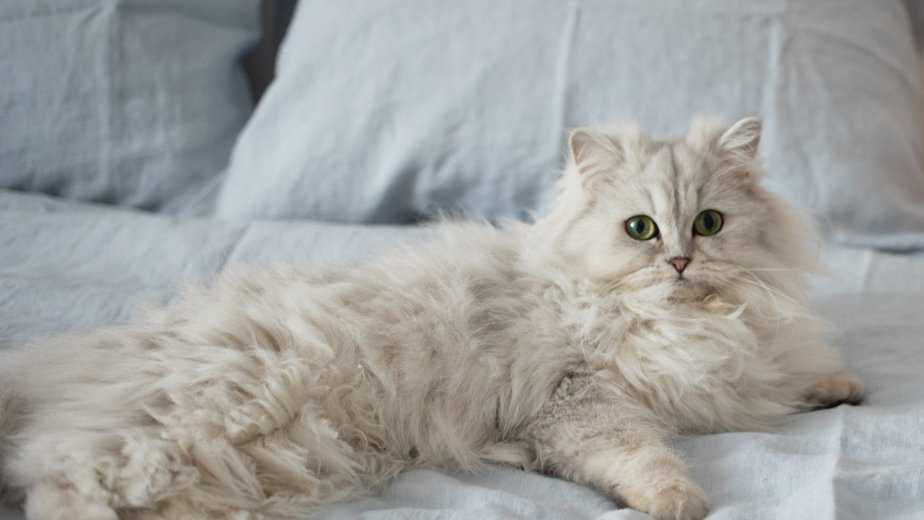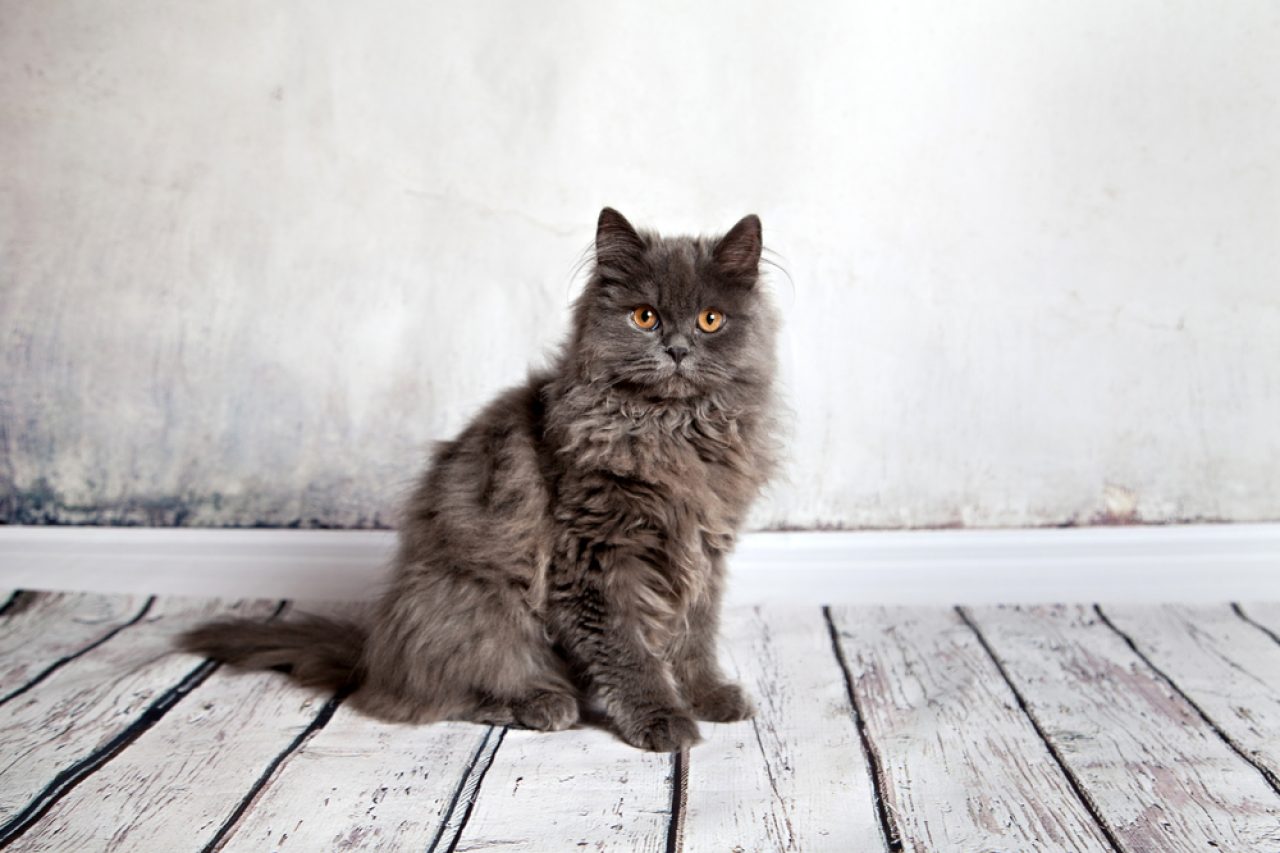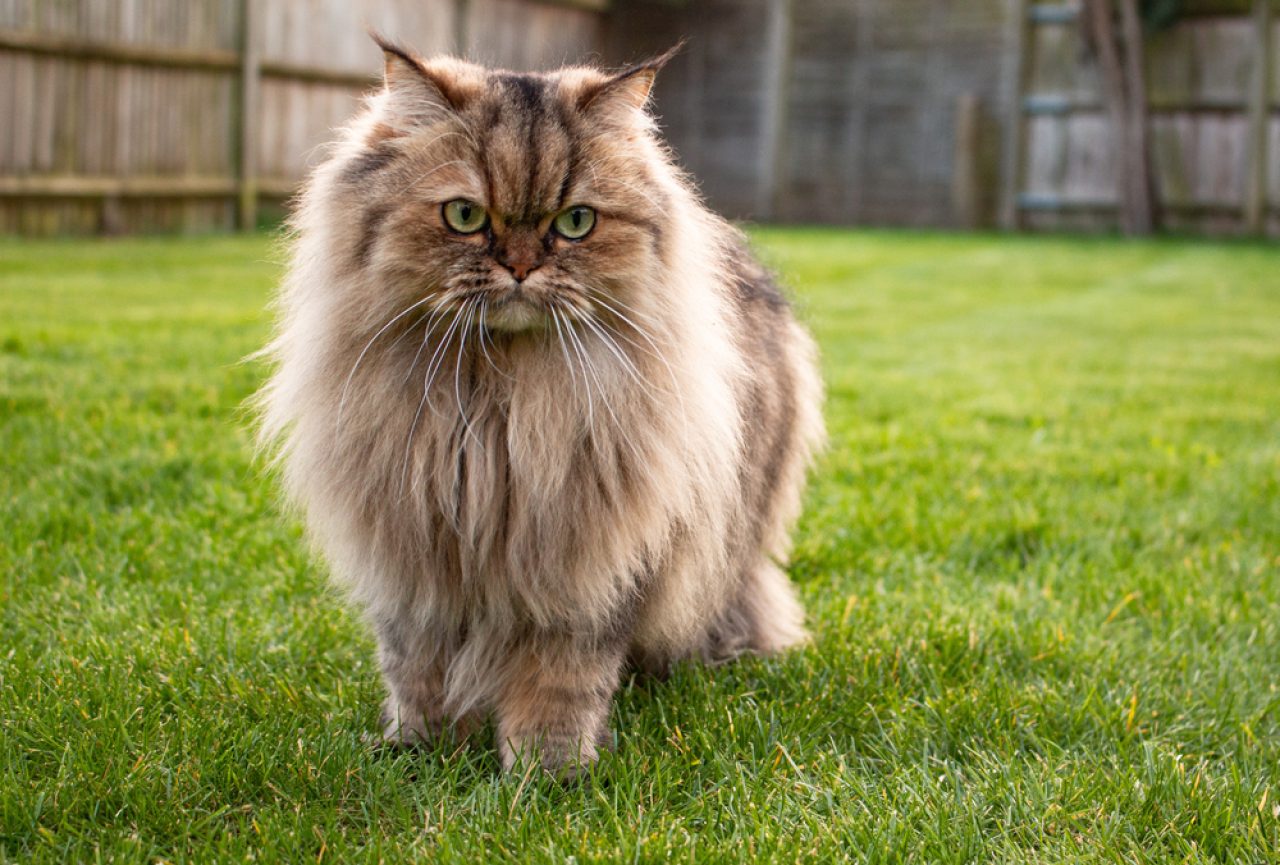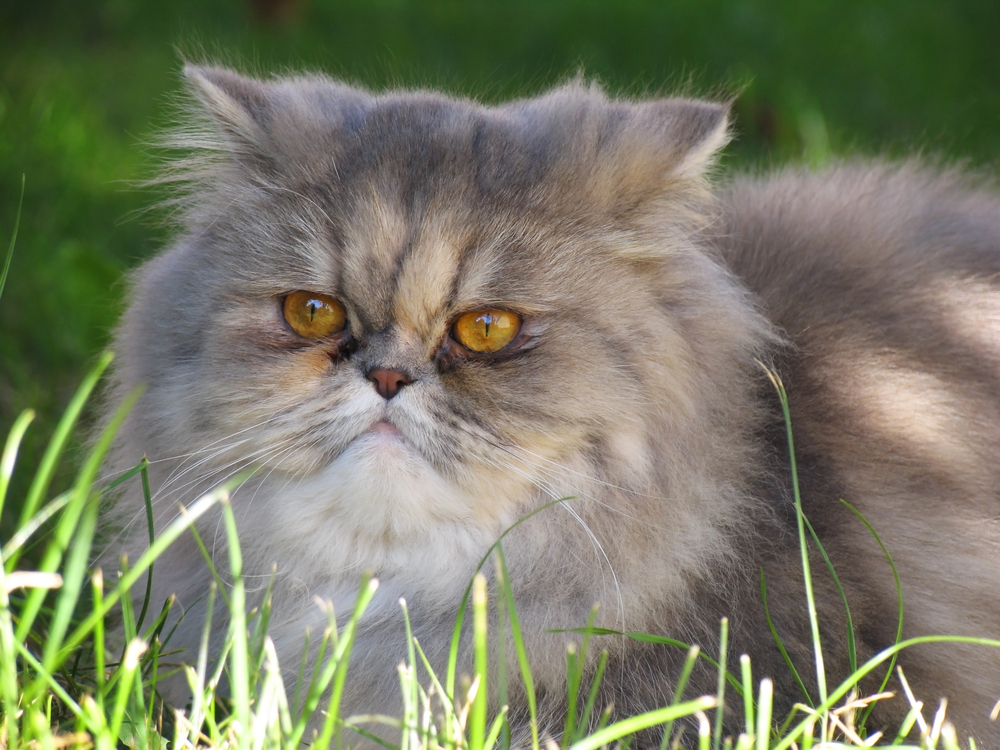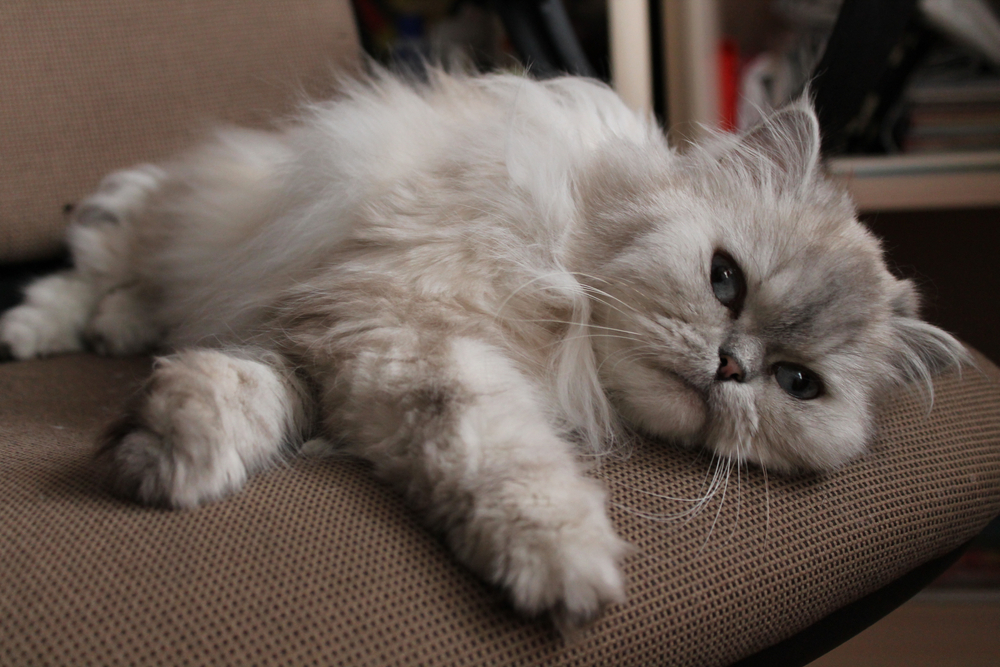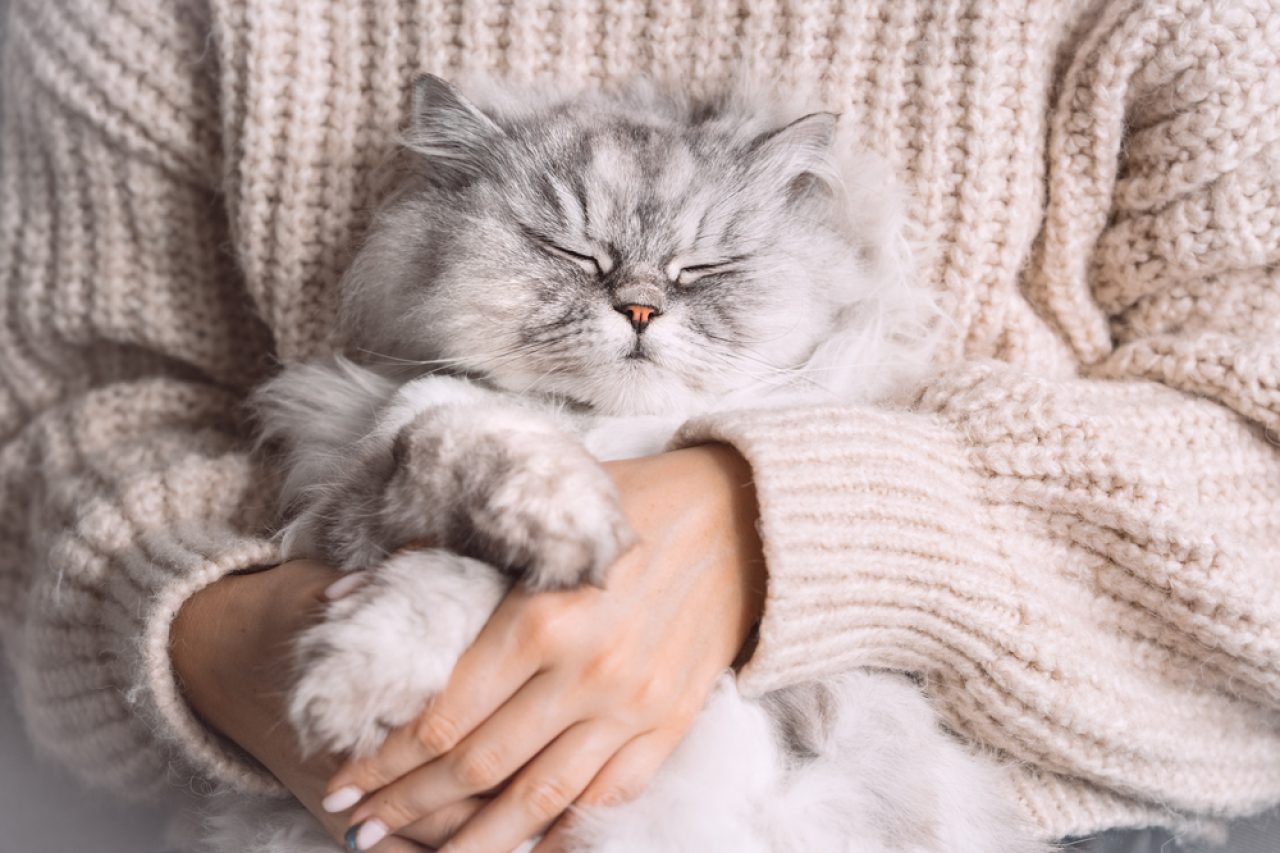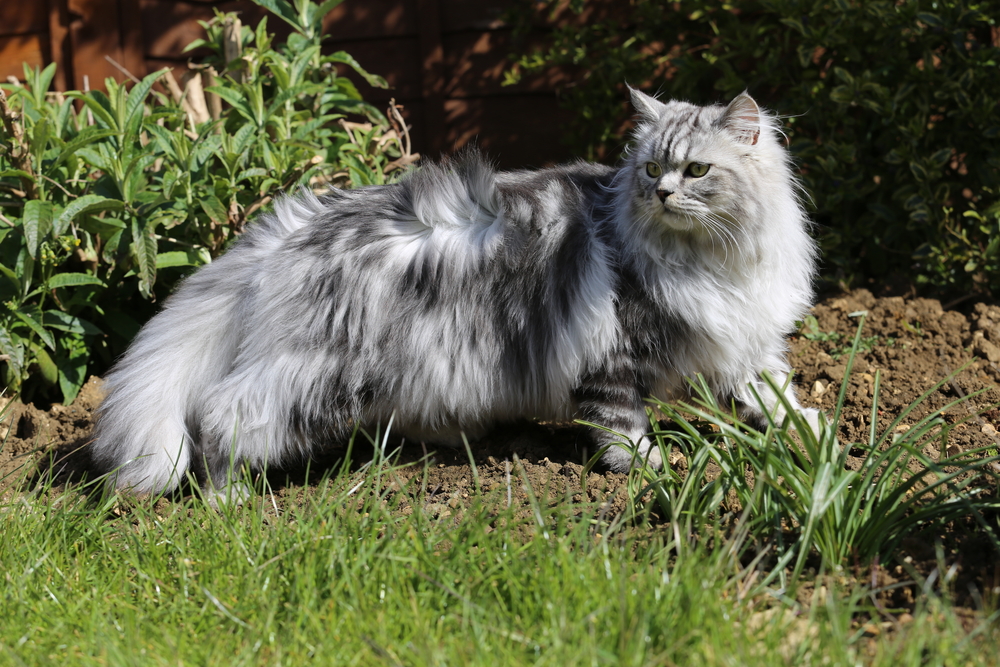📖 Table of Content:
“Are Persian cats hypoallergenic?” you feel as though you’re typing random words that won’t help you with the problem you’ve had ever since you were a child.
Oh, you’ve been allergic to everything fluffy, furry, and absolutely adorable for as long as you can remember. But you still can’t shake the feeling that there’s a way for you to have one.
And you’re not that wrong! Trust me, I have petted and cared for as many cats as there are Grey’s Anatomy episodes. I can attest to the fact that being allergic to them didn’t help with the whole bonding thing.
But that didn’t stop me from going out of my way to figure out how to continue making my life miserable while making my fluffers’ lives as exciting as possible.
Here’s the thing. Getting the “You’re allergic to cats!” diagnosis doesn’t mean you have to forget that these curious creatures make your life better. In fact, when you have your heart set on a fluffer, you shouldn’t allow allergies to keep you away from getting what you want.
Actually, there are ways you can live happily with your cat (or cats!?) without sneezing, sniffling, or rubbing your eyes at all times.
These allergies, as annoying as they might seem, aren’t that dangerous and aren’t that difficult to manage. And, to be completely honest, the things you need to do to ensure both of you are safe and secure are minimal.
Are Persian cats hypoallergenic?
Right off the bat, Persian cats are not hypoallergenic. Contrary to popular belief, not one breed is 100% hypoallergenic, even those with shorter fluff (or no fluff at all).
On the other hand, Persian cats are pretty fluffy compared to other breeds. And that means they don’t even fall under the “likely to be hypoallergenic” category.
How’s that possible? Pet parents tend to think that kitties with shorter fluff and no shedding can’t cause allergic reactions. But even Persian cats with shorter, denser coats cause allergic reactions because the problem isn’t the hair. It’s the dander.
Dander is the dead skin cells that clump up on your cat’s body. That’s right, turns out you’re not the only one who needs to exfoliate!
Dander falls off of your cat’s skin, spreads around the apartment, and ends up pretty much everywhere. Other than dander, there are other allergy triggers you might want to keep an eye out for.
Saliva, mucous, sweat, tears, urine, and feces can spread around your place and cause you to sneeze the day away, thinking you need to vacuum again because you can see your cat’s coat everywhere!
Don’t get me wrong, you do need to vacuum as often as you can when you’re allergic to your cat – but not because of the hair.
1. “Did somebody mention bathing!?”
Persian cats might not be hypoallergenic, but bathing them as often as they allow you might help deal with dander, saliva, and urine residue.
But that’s not going to be an easy task because Persian cats hate water more than anything. And they only need seconds to go from the most affectionate of pets to the most violent of beasts.
Don’t worry, though! Where there’s a will, there’s a way. And we’re here to make sure you go through the bathing process without tears, scratched fingers, and torn T-shirts. When you’re trying to bathe a Persian kitten, make sure you get her accustomed to water as much as you can from an early age.
But, when you’re trying to bathe an adult, already-knows-what’s-up Persian cat, don’t shy away from protecting your hands and eyes, bathing her once every couple of months, and employing powdered soaps and dry mousses in between those baths. Good luck!
2. Grooming, brushing, and taking care of the fluff is a MUST
Persian cats are known for possessing some of the most gorgeous coats out there. But those coats come with a price. While you might not have as much luck trying to bathe a Persian cat, grooming, brushing, and taking care of the fluff shouldn’t be a bearing task.
You might want to consider doing the dirty work outside, though. Not only will you be able to breathe better, but you’ll be coming back to a dander-free apartment, too.
And there’s no reason not to get someone else (who doesn’t suffer from allergies) to do the grooming. Not to mention you always have the option of leaving her at the groomer’s while you’re getting your highlights. Who wouldn’t want a pamper day!?
3. Get proper allergy medication
Sure, Persian cats aren’t hypoallergenic. And sure, you’re heartbroken because you were planning on getting a Persian kitten and spending the rest of your glorious life with her.
But there’s no reason you wouldn’t be able to do that. Other than the fact that the Persian cat’s average lifespan rarely goes past seventeen years, of course.
With proper medication, you can try hanging out with a Persian fluffer from time to time. When your doctor gives you the green light, you can contact your breeder and get the paperwork ready. Trust me, most cat allergies don’t affect your health that severely but are easily manageable.
4. Don’t sleep together – no matter how hard she meows
Here’s the deal. You can’t protect yourself from dander. Sure, you can groom your fluffer outside, open your windows whenever you’re hanging out on the sofa or spending time around the apartment, and clean everything she touches.
But there’s always a possibility you’re going to get at least some dander on you.
Therefore, make sure you limit the time your kitty spends lounging around the area where you eat, sleep, or work. Clean those areas as much as you can and make sure she doesn’t mark her territory, eat, or do her business anywhere near them.
But, one of the best ways to decrease the effect she has on you is to not let her sleep with you. Separate bedrooms should help you out a ton!
5. Clean your apartment all the time
“Mom, stop cleaning the apartment! I’m trying to mark my territory!”
That’s probably something your fluffy friend would say, but she doesn’t know that it’s for the best. Cleaning your apartment makes sure you don’t get as much dander flying around. Vacuuming the carpets and mopping the floors helps you deal with the fact that Persian cats aren’t hypoallergenic.
But that’s common sense even when you’re not dealing with allergies. Come on, you’re not looking to munch on your cat’s fluff because you forgot to clean the kitchen counters.
6. Wash your hands as much as you can
Need we say anything more than that? When you’re parenting the fluffiest of fluffers, you become aware (pretty early on) that they don’t stop shedding even after you’ve groomed, brushed, and bathed them.
As much as we absolutely adore our precious purrincesses, we have to agree they can be pretty gross. Shedding on your kitchen counters, licking the floors after they’ve dropped some food, and pooping outside of the litterbox? Not cool, right!?
Washing your hands all the time seems like the least you can do to ensure you’re keeping those allergens at bay.
So, stop wondering whether Persian cats are hypoallergenic or not. Go and contact your breeder already!
